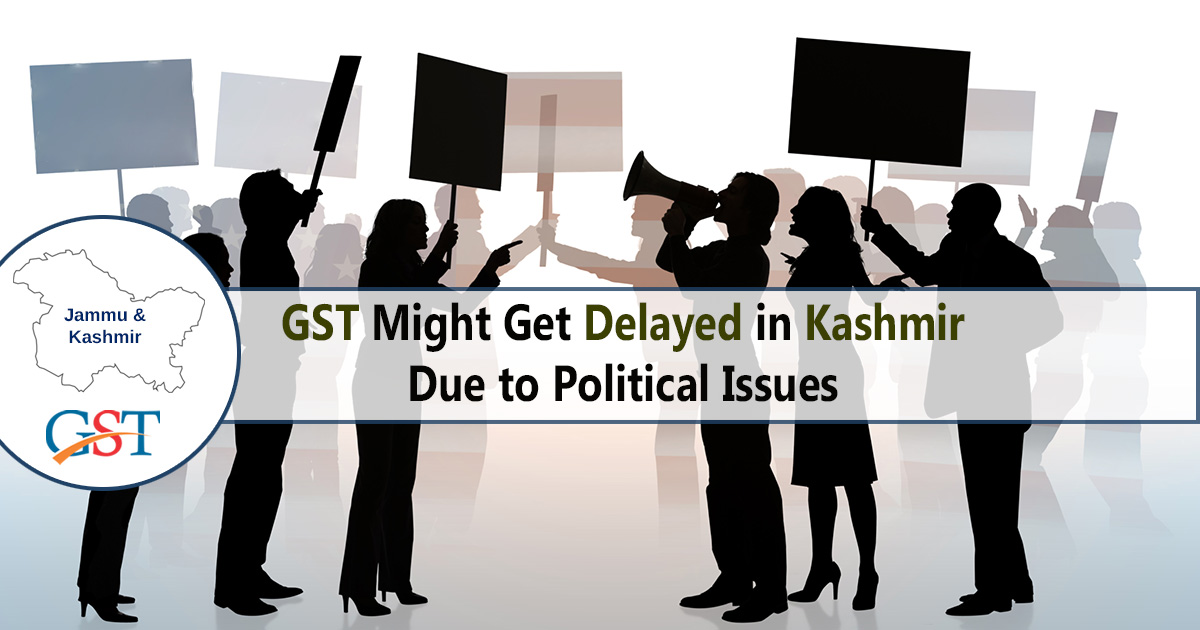The political tensions hovering over Kashmir may create a lag in front of the scheduled roll out of Goods and services tax in India. The state might delay the implementation of GST due to its uncertain political conditions prevailing. The issue can emerge in serious mode as the experts are claiming this will hamper the growth of the state.
It is believed that if the J&K doesn’t meet the deadline of the GST, then it will fail to attract industrial growth as, without the GST implementation, the input tax credit will be denied for the industries operational over there. This can make the industries to step out from the state and making the state vulnerable to more heavier losses.
Delhi and J&K are the two states which are in the middle of the confusion and has demanded the central government to intervene into the matter and also called for special assembly sessions in order to convert any discussion into resolution.
There are total 7 states which have passed the GST bill with the consent while the Karnataka is still in the midst of discussion and has cleared they will be passing the bill in the first week of the June. The AAP fraternity is in the support of the GST and has given some sort of brainstorming to the experts as to whether the J&K will resolve the matter anytime soon. The state is currently going through a tough phase in which it has been targeted by the fickle minded youths and border crossed army.
Highly Trending Topic: GST Composition Scheme: Key Features, Eligibility and Registration Process
FM Arun Jaitley said that “The (J&K) government has already declared that it will call a special session to pass it but it’s not giving any time frame yet. We are keeping our fingers crossed.”
Senior NC leader and former finance minister Abdul Rahim Rather, also added that “The Constitutional amendment bill passed by Parliament has to be ratified by the J&K assembly and then the state needs to have its own GST law. However, the important issue is that the special powers available to J&K should not be tampered with. We will oppose that.”










